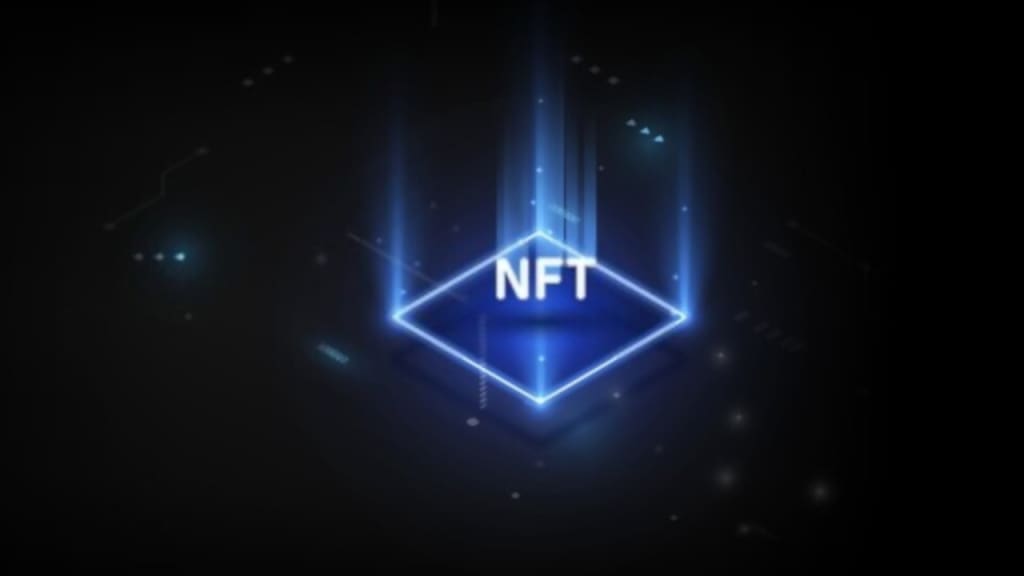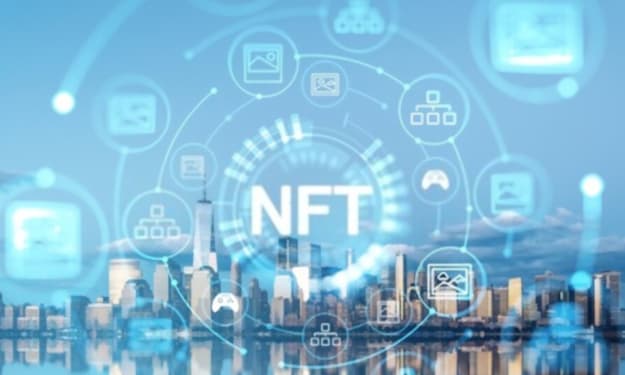Building Your Own NFT Marketplace - A Guide to NFT Development Services
Transforming Business with Real World Examples and Use Cases

NFT (Non-Fungible Token) Development Services refer to the process of creating and deploying unique digital assets that are stored on a blockchain. NFTs are cryptographic assets that represent ownership or proof of authenticity of a particular digital asset, such as art, music, videos, photos, or any other form of digital content.
NFTs have gained popularity in recent years as a way to monetize digital assets and provide verifiable ownership of unique digital content. NFTs can be traded and sold just like traditional assets, and their value can fluctuate depending on the market demand.
NFT development services typically involve creating a smart contract on a blockchain platform such as Ethereum, Binance Smart Chain, or Polygon. The smart contract contains the rules and logic that govern the creation, ownership, and transfer of the NFT. Developers can also create custom NFT marketplaces or integrate NFT functionality into existing platforms such as online marketplaces, gaming platforms, or social media platforms.
NFT development services require expertise in blockchain technology, smart contract development, and web development. Many companies offer NFT development services, ranging from simple NFT creation to full-stack development of NFT marketplaces and platforms.
NFTs in the Real World
NFTs (Non-Fungible Tokens) have been increasingly used in the real world for various purposes. Some of the most notable applications of NFTs include:
- Digital Art: NFTs have revolutionized the way digital art is bought and sold. Digital artists can now create unique pieces of art that are authenticated and owned by a single individual, making it possible for them to monetize their work.
- Music: NFTs have also been used to sell music, with musicians selling unique tracks or entire albums as NFTs. This allows them to retain ownership of their music and ensure that they receive proper royalties for their work.
- Sports: NFTs have been used to sell collectibles such as trading cards, tickets, and other sports memorabilia. This allows fans to own unique and authenticated pieces of sports history.
- Gaming: NFTs have also been used in gaming, with developers creating unique in-game items that can be bought, sold, and traded among players. This has created a new market for gaming enthusiasts and collectors.
- Real Estate: NFTs have also been used in real estate, with developers selling ownership of virtual plots of land or buildings as NFTs. This allows individuals to own virtual real estate, which can be a valuable asset in virtual worlds.
Overall, NFTs are increasingly being used as a way to represent ownership and authenticity of digital assets, creating new markets and opportunities in various industries.
NFT Statistics
Here are some recent statistics on NFTs (Non-Fungible Tokens):
- According to NonFungible.com, the total sales volume of NFTs in 2021 was $10.7 billion, up from $250 million in 2020.
- The average price of an NFT in 2021 was $1,256, up from $142 in 2020.
- The top-selling NFT in 2021 was "Every day: The First 5000 Days" by artist Beeple, which sold for $69.3 million at a Christie's auction.
- The most popular blockchain platform for NFTs is Ethereum, which accounts for more than 95% of all NFT transactions.
- The most common type of NFT sold in 2021 was art, which accounted for 25% of all NFT transactions.
- The number of unique wallets that hold NFTs has grown significantly, reaching over 3 million in March 2022, up from less than 100,000 in early 2020.
- The market capitalization of the top 100 NFT projects exceeded $63 billion in March 2022.
These statistics highlight the explosive growth of the NFT market and the increasing popularity of NFTs as a way to represent ownership and authenticity of digital assets.
Why NFT Development Services are Important?
NFT (Non-Fungible Token) development services are important for several reasons:
- Enable Monetization of Digital Assets: NFTs provide a way to monetize digital assets such as art, music, and other creative content. By creating unique and verifiable ownership of digital assets, creators can sell their work as one-of-a-kind assets, rather than as easily reproducible copies.
- Establish Authenticity and Provenance: NFTs provide a way to establish the authenticity and provenance of digital assets. They allow creators and collectors to track the ownership history and verify the authenticity of each asset. This is especially important in the art world, where provenance plays a crucial role in determining the value of a work.
- Create New Markets and Opportunities: NFTs are creating new markets and opportunities in various industries, from art and music to gaming and real estate. NFTs enable the creation of new business models and revenue streams that were not possible before.
- Blockchain Technology: NFTs are built on blockchain technology, which provides a secure and transparent way to manage digital assets. The use of smart contracts ensures that NFTs are traded and transferred securely and that the rules governing ownership and royalties are enforced.
Overall, NFT development services are important because they enable the monetization of digital assets, establish authenticity and provenance, create new markets and opportunities, and leverage the security and transparency of blockchain technology.
Skills That Make a Good NFT Token Development Company
To be a good NFT (Non-Fungible Token) development company, there are several skills and expertise that are crucial. Here are some of the key skills that make a good NFT development company:
- Blockchain Technology Expertise: A good NFT development company should have a deep understanding of blockchain technology, including how it works, its advantages and limitations, and the various blockchain platforms available for NFT development.
- Smart Contract Development: NFTs are built on smart contracts, so a good NFT development company should have expertise in developing and deploying smart contracts on blockchain platforms such as Ethereum, Binance Smart Chain, or Polygon.
- Web Development: NFTs are often integrated into web platforms, so a good NFT development company should have strong web development skills, including front-end and back-end development, UI/UX design, and database management.
- Digital Asset Management: NFT development companies should have experience in managing and storing digital assets securely, including the use of secure storage solutions such as IPFS (InterPlanetary File System).
- Token Economics: A good NFT development company should have a deep understanding of token economics, including how to design and implement NFTs that are valuable, sustainable, and aligned with the needs of creators and collectors.
- Market Knowledge: A good NFT development company should have a strong understanding of the NFT market and its trends, including the various use cases for NFTs, the key players in the market, and the regulatory landscape.
- Innovation and Creativity: Finally, a good NFT development company should be innovative and creative, constantly pushing the boundaries of what is possible with NFTs and exploring new use cases and applications.
Overall, to be a good NFT development company, it is important to have a combination of technical expertise, market knowledge, innovation, and creativity.
Conclusion
NFTs have emerged as a revolutionary technology that is transforming the way we think about digital ownership and monetization. With the ability to represent unique and verifiable ownership of digital assets, NFTs are creating new opportunities for creators, collectors, and businesses across various industries. As the market for NFTs continues to grow and evolve, the demand for NFT development services is increasing. To be a good NFT development company, it is important to have a combination of technical expertise, market knowledge, innovation, and creativity. With the right skills and expertise, NFT development companies can help creators and businesses leverage the power of NFTs to unlock new revenue streams and establish authentic ownership of digital assets.
About the Creator
Geetika Chara
A passionate content writer actively working at NFT Development Services. I'm really interested to write Non-fungible Token Development blogs or articles to explore.






Comments
There are no comments for this story
Be the first to respond and start the conversation.